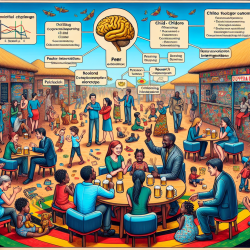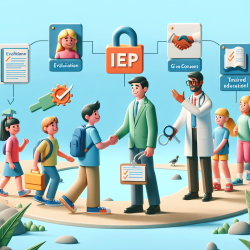The world of developmental and epileptic encephalopathies (DEEs) is complex, with SYNGAP1 variants playing a significant role. While much is known about the childhood phenotypes associated with these variants, the adult phenotype remains less understood. A recent study titled "Adult Phenotype of SYNGAP1-DEE" sheds light on this area, offering valuable insights for practitioners seeking to improve their skills and understanding.
The Study at a Glance
This research involved 14 unrelated adult patients with SYNGAP1-DEE, ranging from 18 to 65 years old. The study aimed to investigate various phenotypes and outcomes in adults carrying pathogenic or likely pathogenic SYNGAP1 variants. Key areas of focus included seizures, adaptive skills, social communication disorders, sleep disturbances, and caregiver burden.
Key Findings
- Seizures: Seventy-one percent of patients continued to experience seizures into adulthood, highlighting the need for effective seizure management strategies.
- Nonseizure Comorbidities: Aggression and self-injurious behaviors were prevalent in 86% of patients, presenting major management challenges.
- Pain Processing: All patients exhibited abnormal pain processing, indicating a need for tailored pain management approaches.
- Mobility and Independence: Only half of the adults could walk with minimal or no assistance, underscoring the importance of physical therapy and support.
- Cognitive Abilities: No adult patients could read or understand verbal material at a sixth-grade level or higher, emphasizing the need for specialized educational interventions.
Implications for Practice
The findings from this study offer several implications for practitioners working with adults with SYNGAP1-DEE:
- Comprehensive Management Plans: Given the complexity of symptoms, a multidisciplinary approach involving neurologists, therapists, and caregivers is essential.
- Pain Management: Tailored pain management strategies should be developed to address the unique pain processing challenges faced by these patients.
- Cognitive and Behavioral Support: Specialized educational programs and behavioral interventions can help improve quality of life and reduce caregiver burden.
- Lifelong Monitoring: Continuous monitoring of symptoms such as seizures and sleep disturbances is crucial to adjust treatment plans as needed.
The Path Forward
This study highlights the importance of genetic testing in adults with DEE to inform clinical care and guide precision therapies. Encouraging further research in this area can lead to improved outcomes and a better understanding of SYNGAP1-DEE in adults.
If you're interested in exploring this topic further, consider delving into the original research paper for more detailed insights. To read the original research paper, please follow this Adult Phenotype of SYNGAP1-DEE.










